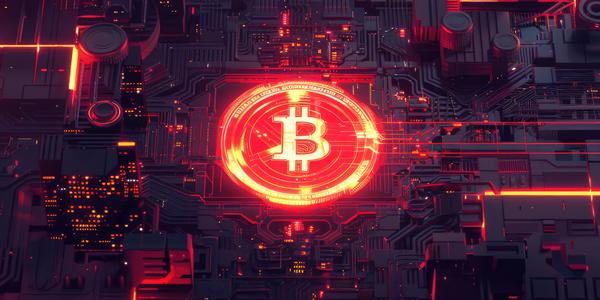Avara Founder Supports Proposal to Remove Polygon Markets from Aave
The Proposal to Drop Support for Polygon Markets
Stani Kulechov, founder and CEO of Avara — the parent entity for the suite of Aave companies — has recently backed a proposal to drop support for Polygon markets from the Aave platform. This decision comes after an early-stage Polygon Improvement Proposal (PIP) from Allez Labs and Morpho aimed at using stablecoins in Polygon’s proof-of-stake Portal bridge to generate yield.
The Unacceptable Safety Risk
According to Kulechov, the suggested Polygon Improvement Proposal posed an unacceptable safety risk to Aave. As he noted, bridge exploits have led to some of the most catastrophic financial losses in decentralized finance (DeFi). The Avara founder cited the $100-million Harmony Horizon bridge hack in June 2022 as just one example of the dangers posed by bridge exploits.
A Concerned Response from Kulechov
Cointelegraph reached out to Kulechov but was unable to obtain a response before publication. However, his post backing the severing of ties between Aave and Polygon echoed a Dec. 13 proposal from Aave chain founder Marc Zeller to discourage Polygon users from using Aave and eventually end support altogether.
Adjusting Risk Parameters
Zeller suggested adjusting the risk parameters of loans on Aave v2 and Aave v3 on the Polygon network to make it unattractive for Polygon users to deposit funds into the lending protocol. This decision was likely made with the best intentions, but its impact is still being felt in the DeFi community.
The Other Side of the Story: Polygon’s Perspective
Polygon founder Sandeep Nailwal responded to Aave’s leadership on social media by characterizing the proposal to sever ties as ‘monopolistic.’ According to Nailwal, Aave’s leadership submitted a similar pre-PIP to use stablecoins in the Polygon proof-of-stake bridge to generate yield.
A Pre-PIP and Its Rejection
Nailwal argued that the Morpho proposal, which was still generally rejected by the Polygon community, was more decentralized and featured incentives that would encourage project development in the Polygon ecosystem. These attractive selling points caused the proposal from Morpho and Allez Labs to gain traction and generate more buzz among the Polygon community than the competing proposal from the Aave leadership.
A Question of Decentralization
The decision by Aave’s leadership to sever ties with Polygon raises questions about decentralization in the DeFi space. As the sector continues to grow, it is essential that projects work together to create a secure and user-friendly environment for investors.
The Impact on the DeFi Ecosystem
The proposal to drop support for Polygon markets from the Aave platform has sparked debate within the DeFi community. Some argue that this decision will lead to greater decentralization, while others believe it will harm the ecosystem as a whole.
A Risky Business: Bridge Exploits in DeFi
As noted by Kulechov, bridge exploits have led to some of the most catastrophic financial losses in decentralized finance. The Avara founder cited the $100-million Harmony Horizon bridge hack in June 2022 as just one example of the dangers posed by bridge exploits.
The Need for Greater Collaboration
In conclusion, the proposal to drop support for Polygon markets from the Aave platform highlights the need for greater collaboration within the DeFi space. By working together, projects can create a secure and user-friendly environment for investors.
A Roadmap Forward: Ensuring a Decentralized Future for DeFi
As the DeFi ecosystem continues to grow, it is essential that projects prioritize decentralization and security above all else. By doing so, we can ensure a bright future for decentralized finance.
The History of Bridge Exploits in DeFi
Bridge exploits have been a recurring problem in the DeFi space, with several high-profile hacks occurring over the past year alone.
- The $100-million Harmony Horizon bridge hack (June 2022): This hack was particularly notable due to its severity and the fact that it targeted a relatively small protocol.
- The $80-million Wormhole bridge hack (February 2022): This hack was significant because it demonstrated the potential for even larger-scale exploits in the DeFi space.
- The $20-million Nomad bridge hack (August 2022): This hack highlighted the importance of robust security measures in preventing such incidents.
A Call to Action: Improving Security in DeFi
In light of these events, it is essential that projects prioritize security above all else. By doing so, we can create a safer and more user-friendly environment for investors.
The Importance of Decentralization in DeFi
Decentralization is a core principle of the DeFi space, and it is essential that projects prioritize this concept when making decisions about their platforms.
- Increased transparency: Decentralized protocols often have built-in mechanisms for transparency, which can help to prevent exploits like those mentioned above.
- Improved security: Decentralized protocols typically rely on a network of validators or nodes to maintain the integrity of the protocol, which can make them more secure than centralized alternatives.
- Greater freedom: Decentralized protocols often provide users with greater freedom and autonomy, as they are not subject to the whims of a single entity.
A Bright Future for DeFi: Ensuring a Decentralized Ecosystem
As we move forward in the DeFi space, it is essential that projects prioritize decentralization and security above all else. By doing so, we can create a bright future for decentralized finance.
Conclusion
The proposal to drop support for Polygon markets from the Aave platform highlights the need for greater collaboration within the DeFi space. By working together, projects can create a secure and user-friendly environment for investors.
A Final Note: The Future of DeFi
As we move forward in the DeFi space, it is essential that projects prioritize decentralization and security above all else. By doing so, we can ensure a bright future for decentralized finance.

